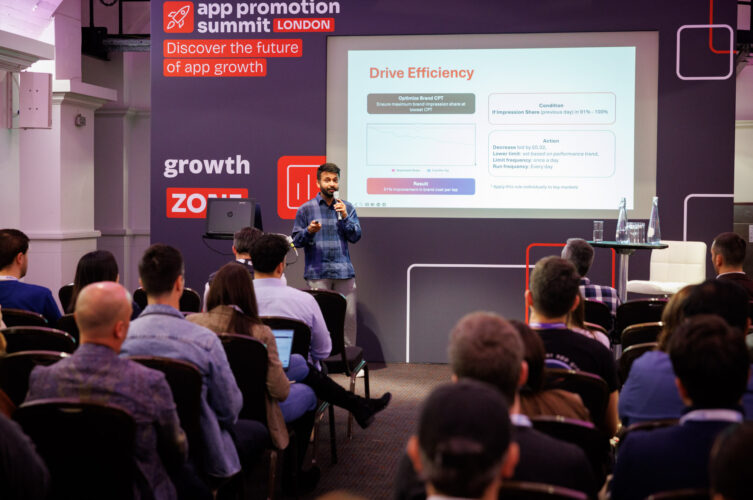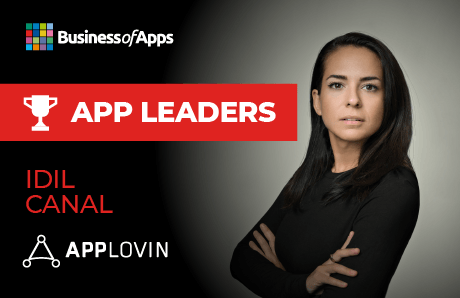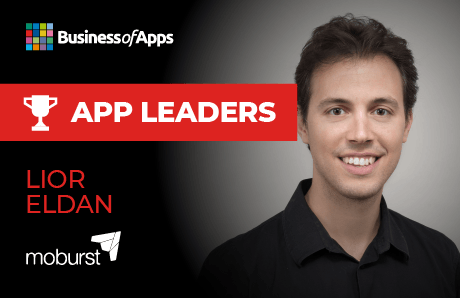Ritwik is an app marketing specialist with over six years of experience in paid UA and ASO. He is currently an App Marketing Manager at Trainline and has led award‑winning user acquisition campaigns across the UK, the US, and Europe. He is also a published author, speaker, and contributor to thought leadership in mobile growth, regularly sharing insights on ASO, digital marketing, and industry trends through blogs and professional networks.
In your own words, what’s your role in the app business right now?
Right now, my role in the app business is to lead global app marketing efforts that drive scalable growth through a combination of App Store Optimization (ASO) and Apple Search Ads (ASA). At Trainline, I oversee initiatives that enhance app visibility, boost conversion rates, and execute high‑impact paid user acquisition campaigns across multiple international markets. I also stay on top of AI trends and continuously explore how to integrate AI‑driven solutions to optimize targeting, efficiency, and performance in my marketing strategies.
How did you end up working in apps?
During my undergraduate degree, I was always drawn to tech and developed a growing interest in marketing. When I discovered app marketing, it instantly clicked—it felt like the perfect mix of creativity, data, and impact. I began in 2018 at a mobile marketing agency, where I learned the ropes—running Facebook Ads, digging into App Store Optimization, and seeing firsthand how small tweaks could drive real results. That hands‑on experience hooked me, and since then I’ve continued building on it—taking on bigger challenges and managing global campaigns. What began as a curiosity quickly grew into a long‑term passion and career path.
What are you most excited about in apps right now?
What excites me most right now is how quickly AI is reshaping the app landscape. Although AI integration in apps is still relatively new, we’re already seeing groundbreaking examples taking the world by storm. It’s giving users more power than ever to create and interact, even without deep technical knowledge. At the same time, not all AI features are gaining traction, and adoption varies. We’re at a point where hyper‑personalization is becoming more achievable, and it’ll be fascinating to see which innovations truly stick and where we end up in the next five years.
Is there anyone you’d like to shout out to who has influenced your journey in the app industry?
I can’t pinpoint a single person, but I’ve been fortunate to work under incredibly supportive and knowledgeable leadership throughout my career. In every role, the people around me have given me the space to explore, grow, and stay curious, which has played a big part in the mini milestones I’ve achieved so far. Before joining Trainline, I worked at companies with leaner structures, which meant I was able to collaborate directly with founders. That exposure really influenced how I approach challenges and think strategically.
What’s in your app tech stack?
My tech stack covers key areas such as app store optimization, user acquisition, analytics, reporting, and team collaboration. It includes tools for keyword research, campaign management, attribution tracking, performance reporting, and project coordination – helping me run data‑driven, efficient, and scalable global app marketing initiatives.
What do you like most about working in apps?
What I like most about working in apps is how natural it feels. I enjoy combining creativity and data to solve real problems. The space is constantly evolving, offering new possibilities to test and refine strategies year over year. With the massive adoption of apps, even small wins can have a big impact, and that makes me genuinely proud of the value I deliver to the businesses I work with.
What one thing would you change about the app industry?
One area I think could improve in the app industry is how Apple and Google support organic growth; Apple, in particular, tends to be a bit slower in rolling out meaningful updates. For example, Apple’s Product Page Optimization has had several limitations for years, making testing less flexible than it could be.
Additionally, while both Apple and Google offer solid support and account manager involvement on the paid side, the organic side often doesn’t receive the same attention, even for big brands. There’s definitely room for both platforms to enhance their support and tooling for organic strategies, which would help apps grow more sustainably.
If you weren’t working in apps what would you be doing?
If I weren’t working in apps, I might have ended up in finance. Back in college, after developing an interest in marketing, finance was the other field that really caught my attention. After completing my undergraduate degree, I even had the opportunity to take on a finance role at S&P Global. But things unfolded differently, and I found myself stepping into the world of app marketing, which turned out to be the perfect fit.
iOS or Android?
iOS.
What apps have been most useful to you over the last year?
ChatGPT, Canva, Notes.
Is there anything else we should know about you?
I mentor international students, particularly those planning to study or start their careers in the UK. Having gone through that journey myself, I enjoy sharing practical advice and helping others navigate their paths, whether through one‑on‑one guidance, content creation, or community initiatives. It is something I find genuinely fulfilling.
Do you know someone driving change and growth in the app industry? Nominate an app leader here.








